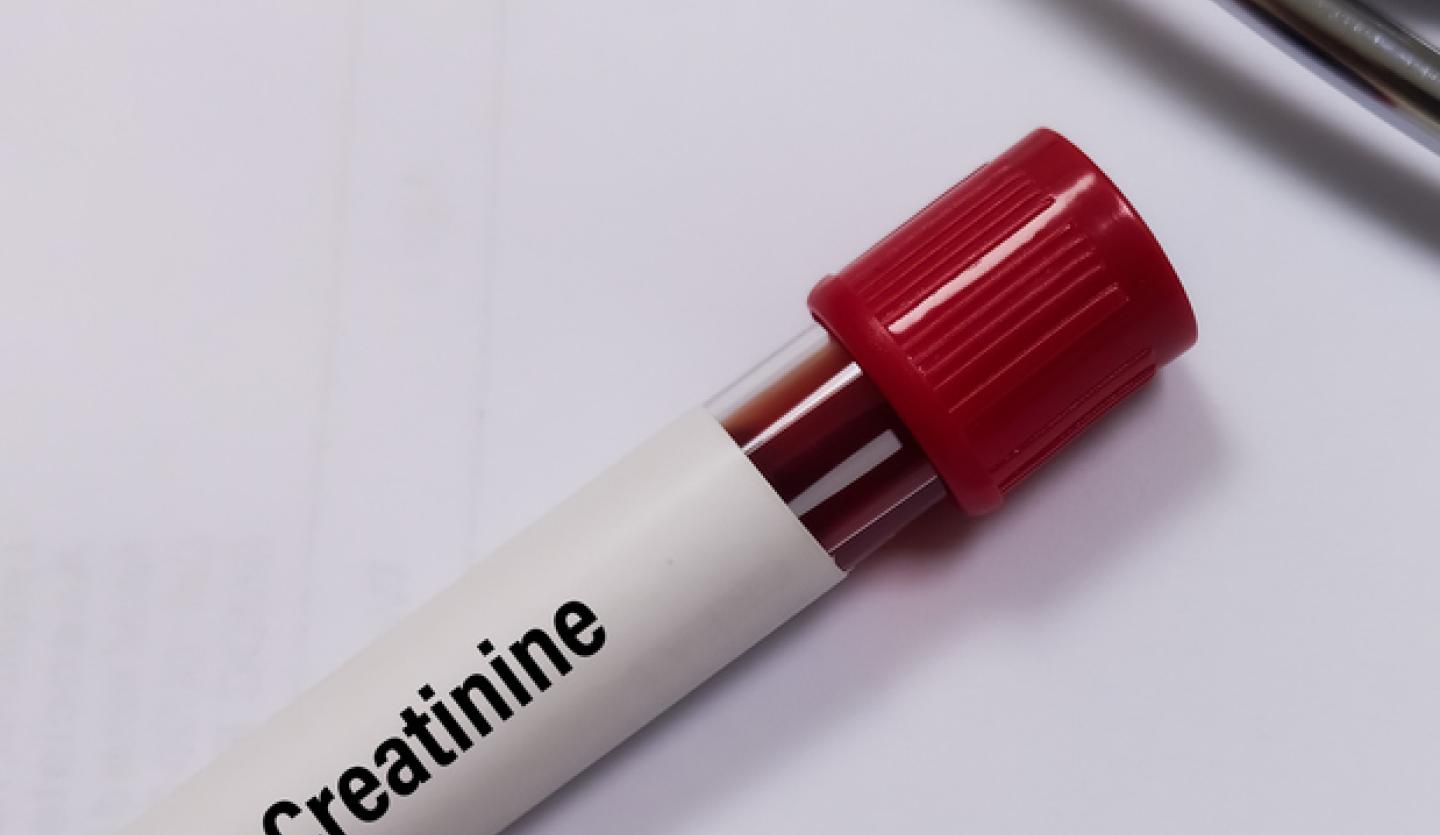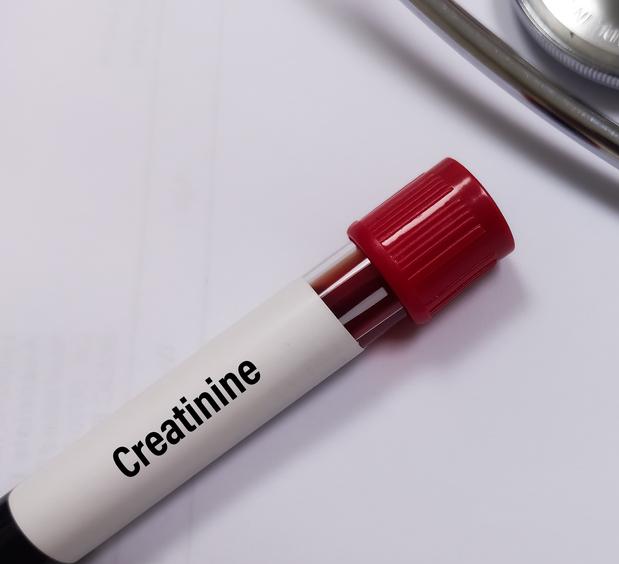“You may need a blood test called creatinine if you have kidney disease or your doctor is concerned that you may have a kidney problem,” said Tejas Patel, MD, Catholic Health Nephrologist. “High creatinine levels can indicate your kidneys are not working well.”
What is creatinine?
Creatinine is a byproduct of energy-producing processes in your body, mainly the breakdown of muscles. Healthy kidneys remove creatinine from your blood. Then, creatinine exits the body in urine.
Should I have my creatinine levels checked?
Your doctor may want to monitor your kidneys by checking your creatinine levels if you:
- Have a health condition that increases your chance of developing kidney disease, such as diabetes, heart disease, high blood pressure or obesity.
- Are currently undergoing treatment for kidney disease.
- Are taking certain medications that may cause kidney damage or change how your kidneys work.
- Have a transplanted kidney.
- Have symptoms that may indicate kidney disease.
- Are pregnant.
What causes high creatinine levels?
Creatinine typically enters the bloodstream at a fairly steady rate. The kidneys also generally filter creatinine from the blood at a relatively constant rate, which means creatinine levels in the blood should be relatively stable.
“An increase in blood creatinine levels can be a sign of kidney function problem,” said Dr. Patel.
Several potential factors can cause high creatinine levels. These include:
- Dehydration.
- Glomerulonephritis–inflammation in the kidneys.
- Heart disease, heart attack, heart failure.
- Blood disorders.
- Rheumatologic conditions such as lupus or rheumatoid arthritis.
- Urologic problems such as enlarged prostate or kidney stone.
- Infections such as urinary tract infection, sepsis or infection in the blood.
- Allergies (especially certain medications such as antibiotics).
- Medications–certain medications used for heart disease (ACE inhibitor, angiotensin receptor blocker, diuretic or water pills), antibiotics used to treat infection, drugs used to treat certain cancer and rheumatologic conditions.
What are the symptoms of high creatinine levels?
Symptoms related to high creatinine levels depend on the underlying cause. The vast majority of patients do not have any symptoms unless kidney function is very low. In general, symptoms of kidney failure may include:
- Confusion
- Fatigue or weakness
- Shortness of breath
- Fluid retention that causes swelling in the legs or feet
- Irregularities with urination, including:
- Cloudy or foamy urine
- Foul odor
- Increased frequency
- Pain with urination
- Nausea and vomiting
- Metallic taste
- Itching over the body
- Pain in the lower back
How is creatinine measured?
A blood or urine test measures creatinine levels. You may need to collect urine at home over 24 hours in containers provided by your doctor’s office for a urine test.
What are the types of creatinine results?
Albumin/Creatinine Ratio
Albumin is a protein found in your blood. Because healthy kidneys usually do not filter albumin out of the blood, you should have little or no albumin in your urine. This ratio describes the amount of albumin and creatinine in your urine.
Lab technicians report the albumin/creatinine ratio as the number of milligrams (mg) of albumin for every gram (g) of creatinine. Healthy ratios are as follows:
- Adult males: Less than 17mg/g
- Adult females: Less than 25mg/g
Creatinine Clearance
This test checks how well your kidneys filter creatinine out of your blood by taking multiple urine samples over 24 hours and, sometimes, followed by a blood test.
Lab technicians report creatinine clearance as milliliters of creatinine per minute per body surface area (mL/min/BSA). For men aged 19 or 75 years, the normal range is 77 to 160 mL/min/BSA. The normal ranges for creatinine clearance for women are as follows:
- Ages 18-29: 78 to 161 mL/min/BSA
- Ages 30-39: 72 to 154 mL/min/BSA
- Ages 40-49: 67 to 146 mL/min/BSA
- Ages 50-59: 62 to 139 mL/min/BSA
- Ages 60-72: 56 to 131 mL/min/BSA
Experts are still determining standard ranges for men over 75 and women over 72.
Serum Creatinine Level
Lab technicians report serum creatinine levels as milligrams of creatinine per deciliter of blood (mg/dL) or micromoles of creatinine per liter of blood (micromoles/L). The normal ranges of serum creatinine:
- Adult males: 0.74 to 1.35 mg/dL
- Adult females: 0.59 to 1.04 mg/dL
Glomerular Filtration Rate (GFR)
The GFR is a value that gives approximate kidney function. It is reported with creatinine by the laboratory using factors already available, such as blood creatinine level, age and sex. The value is called estimated GFR or eGFR. A person with an eGFR of less than 60 ml/min/1.732m2 may have kidney disease. In that case, your physician may suggest you undergo further testing so they can make a diagnosis.
What is the treatment for high creatinine levels?
“To treat high creatinine levels, you need to treat the underlying cause,” said Dr. Patel. “If a kidney infection has caused the elevated creatinine levels, you will likely need an antibiotic medication. If uncontrolled high blood pressure is the cause, you need to work with your doctor to manage this condition better.”
Regardless of the cause, lifestyle changes help to keep your creatinine levels healthy in the future. Changes may include reducing your diet's amount of protein, especially red meat, and increasing fiber and water.







